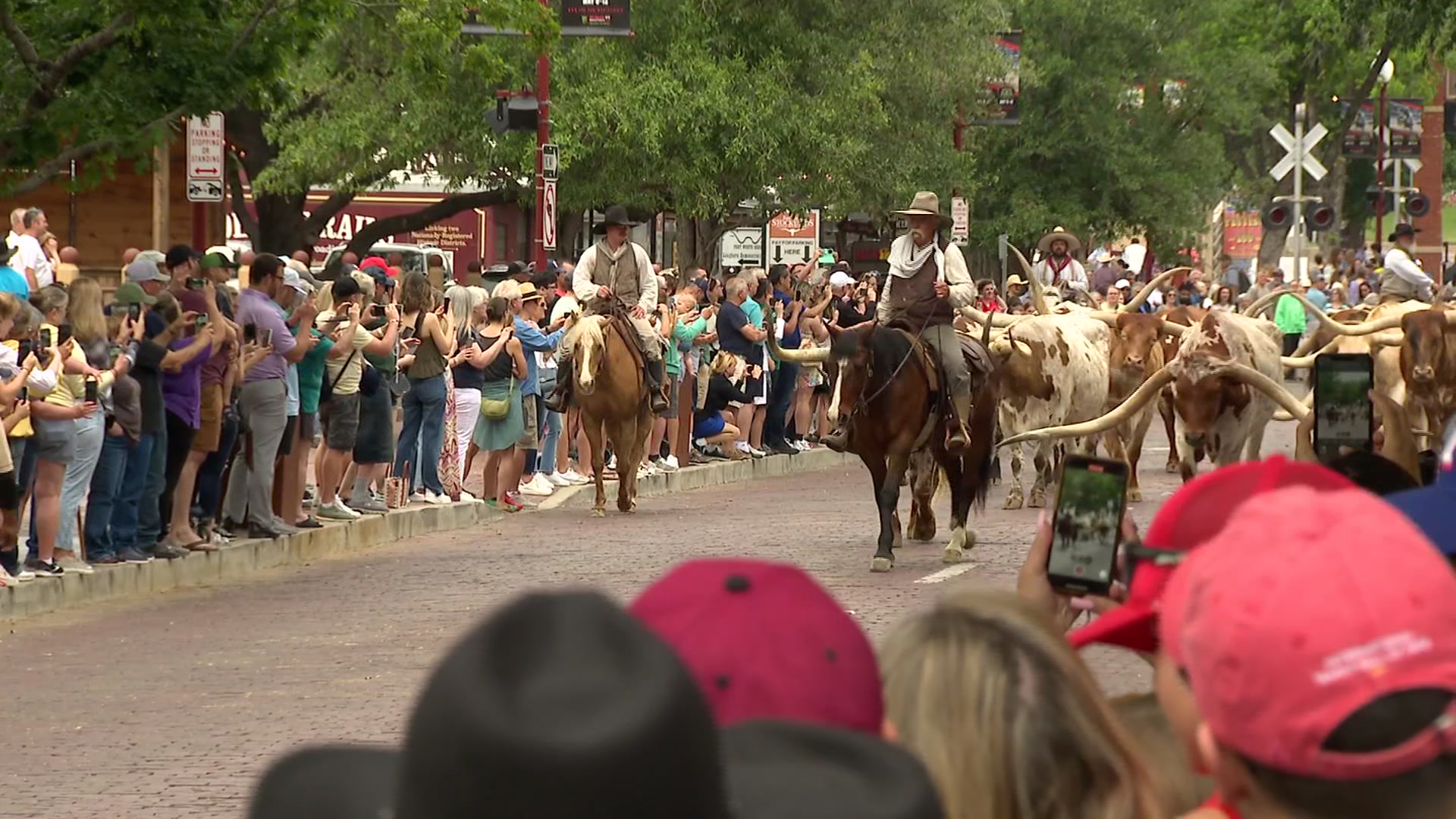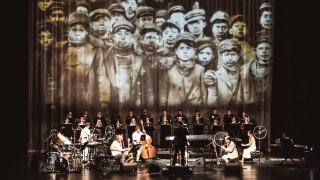
A community that sings together, heals together. Verdigris Ensemble’s concert series, “How To Go On,” is a musical guide for navigating trauma following a crisis and building community through healing.
“Music is a binding force that brings people together," said Sam Brukhman, Verdigris Ensemble’s Artistic Director. "I am reminded of Estonia's Singing Revolution and how much of an impact it had as the Soviet Union was crumbling in the 90s. Music is that powerful. We are experiencing collective grief across the board for a variety of reasons: race riots, COVID, Ukraine, etc. This concert gives our community a sense of togetherness as we navigate these difficulties into a better and brighter time. Music serves as a binder to make people feel community. It makes people feel strength. It makes people feel vindication. It makes people feel justice."
Verdigris Ensemble will perform the concert series at First Presbyterian Church of Dallas on April 8 and 9 and at Moody Performance Hall in the Dallas Arts District on April 10. The program includes two American contemporary pieces: The Branch Will Not Break by Christopher Cerrone and How To Go On by Dale Trumbore.
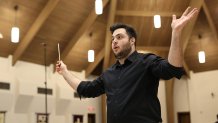
Get DFW local news, weather forecasts and entertainment stories to your inbox. Sign up for NBC DFW newsletters.
Both pieces explore self-actualization in the face of despair and crisis but understanding how to go on is not easy.
“We don't have the answers on how to move forward after a tragedy, but we know beyond a shadow of doubt that, in order to move on, we must have community, conversation, and a sense of collective strength," Brukhman said. "And that’s exactly what we aim to do with the ‘How To Go On’ concerts. We want to explore, together, how we can address and move forward."
“Every human battles strife differently, and when faced with great tragedy and turmoil, it can be hard to even accomplish the most basic tasks for oneself," Brukhman said. "For me? Going on means being present. Knowing what is going on within yourself, knowing what is going on within your community, and knowing what is going on within the world. To make yourself present for those who need you."
The Scene
Julie Strauser, one of Verdigris Ensemble’s sopranos, finds respite in the eyes of a child.
“When I am feeling overwhelmed, I spend time with my 9-month-old son," Strauser said. "He sees the world through an inquisitive, bright lens, and we always end up laughing about something silly. I also check in with my closest friends and family and talk through what I'm feeling, or in some cases, ask them for help."
Contending with an unpredictable pandemic and absorbing the ramifications of the Russian invasion of Ukraine means redefining “normal.”
“Going on looks like moving forward in a completely new way." Brukhman said. "Going back to what we were is not an option because our ecosystem has evolved and changed significantly. Our world is changing.”
In a time of illness and war, going on can be a call to action.
“It means ‘going on’ for the people who no longer can," Allison said. "Staying knowledgeable about the current news and events and doing your own part to help the people who can't help themselves. ‘Going on’ means finding ways to give personal donations, pushing your government into supplying aid (either fiscally, or legislatively), and combating the heinous evils of this world with art and beauty."
Self-care is also part of moving forward.
“I think it also means remembering to take care of yourself and find light in times of despair," Strauser said. "Remembering to do the simple things like taking a shower, going outside for a walk, or calling a loved one is how we go on and make it through from day-to-day."
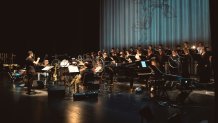
Music is a personal conduit to move forward for Allison, Brukhman and Strauser.
“Music soothes and touches the soul in ways that nothing else can," Allison said. "Music speaks to us primally and viscerally, straight to our blood. As selfish as it may seem, I know that music has helped me through the hardest times of my life. I wish to give that same gift to others."
“Music has always been the only thing that made me feel understood by forces beyond my comprehension," Bruhkman said. "Music is expression and expression is the only way I can communicate to my audiences how I feel. I have always been a relatively shy person, especially in my adolescence, and appreciated moments when I felt I could fully express myself. I remember the first time I experienced music in a choir - it simply changed my life. And since then, I have wanted to recreate the same experience I felt for audiences and performers alike. That is how I personally go on."
“Music helps me personally go on by giving me purpose and a sense of community," Strauser said. "Singing with others leaves me feeling re-energized and sharing our thoughts about the music we sing brings us together. I feel especially grateful to be making music with others in-person after not being able to do so for two years."
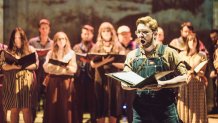
Music is the unifying force that links generations and translates incomprehensible personal grief into universal empathy.
“I've heard it said that singing is what people do when they feel an emotion so strongly that speech isn't enough," Strauser said. "I think music, and in particular, singing, offers people an outlet to share their innermost feelings to connect with each other. It often feels impossible to make sense of tragic events, and music can help us in times when we simply don't have the words."
“Nearly all civilizations across the span of our world's history included singing and music as a major part of their cultural identity," Allison said. "Singing our truths is part of what makes us human beings. Sharing our innermost intimate feelings through the unspeakable vulnerability of music helps us communally share our pain and our fears. Music helps society go on because music has always been there for us. Our ancestors sang to ‘go on’, and our children will sing to ‘go on."
Learn more: https://www.verdigrismusic.org/

